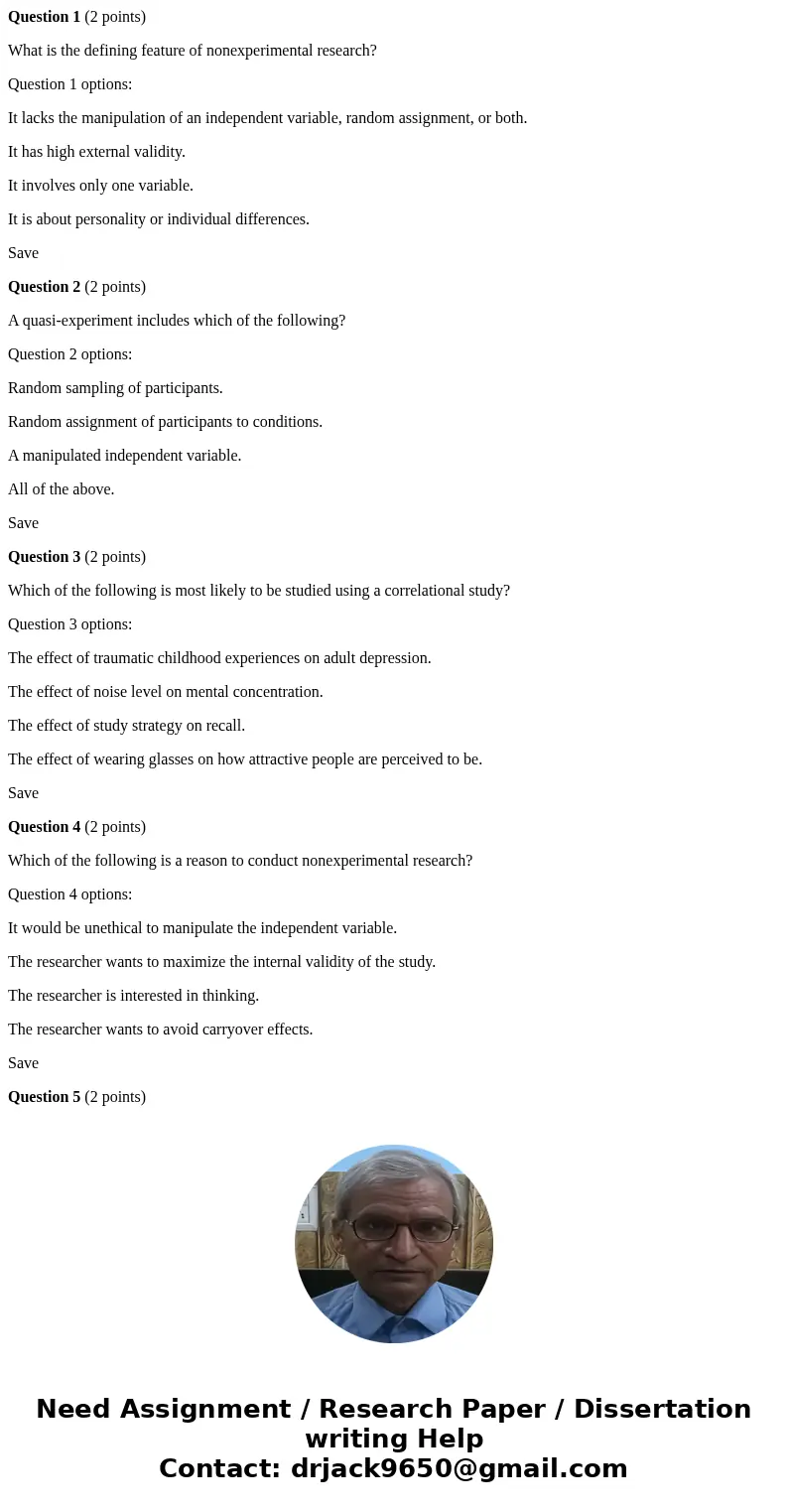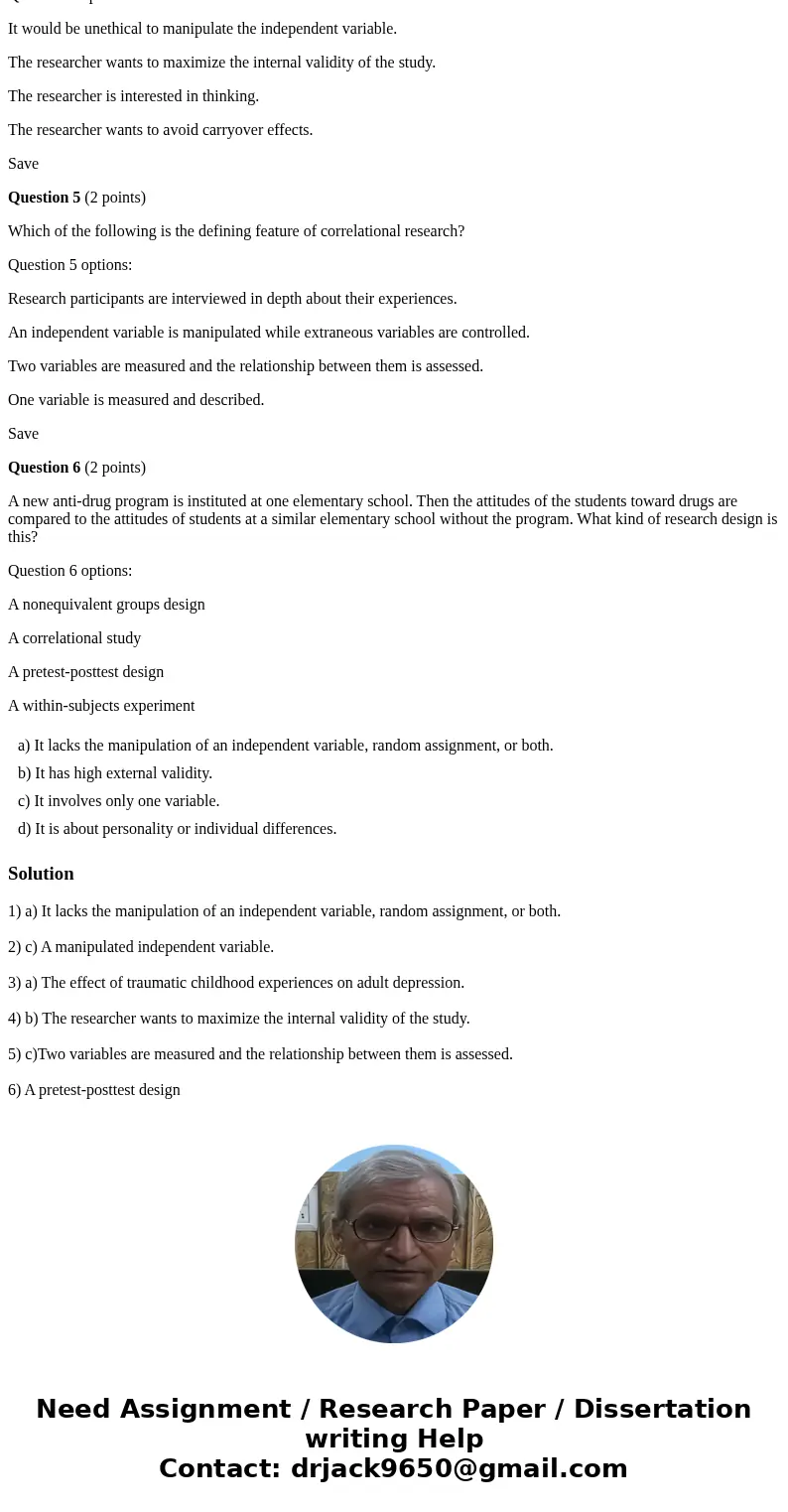Question 1 2 points What is the defining feature of nonexper
Question 1 (2 points)
What is the defining feature of nonexperimental research?
Question 1 options:
It lacks the manipulation of an independent variable, random assignment, or both.
It has high external validity.
It involves only one variable.
It is about personality or individual differences.
Save
Question 2 (2 points)
A quasi-experiment includes which of the following?
Question 2 options:
Random sampling of participants.
Random assignment of participants to conditions.
A manipulated independent variable.
All of the above.
Save
Question 3 (2 points)
Which of the following is most likely to be studied using a correlational study?
Question 3 options:
The effect of traumatic childhood experiences on adult depression.
The effect of noise level on mental concentration.
The effect of study strategy on recall.
The effect of wearing glasses on how attractive people are perceived to be.
Save
Question 4 (2 points)
Which of the following is a reason to conduct nonexperimental research?
Question 4 options:
It would be unethical to manipulate the independent variable.
The researcher wants to maximize the internal validity of the study.
The researcher is interested in thinking.
The researcher wants to avoid carryover effects.
Save
Question 5 (2 points)
Which of the following is the defining feature of correlational research?
Question 5 options:
Research participants are interviewed in depth about their experiences.
An independent variable is manipulated while extraneous variables are controlled.
Two variables are measured and the relationship between them is assessed.
One variable is measured and described.
Save
Question 6 (2 points)
A new anti-drug program is instituted at one elementary school. Then the attitudes of the students toward drugs are compared to the attitudes of students at a similar elementary school without the program. What kind of research design is this?
Question 6 options:
A nonequivalent groups design
A correlational study
A pretest-posttest design
A within-subjects experiment
| |||
| |||
| |||
|
Solution
1) a) It lacks the manipulation of an independent variable, random assignment, or both.
2) c) A manipulated independent variable.
3) a) The effect of traumatic childhood experiences on adult depression.
4) b) The researcher wants to maximize the internal validity of the study.
5) c)Two variables are measured and the relationship between them is assessed.
6) A pretest-posttest design


 Homework Sourse
Homework Sourse